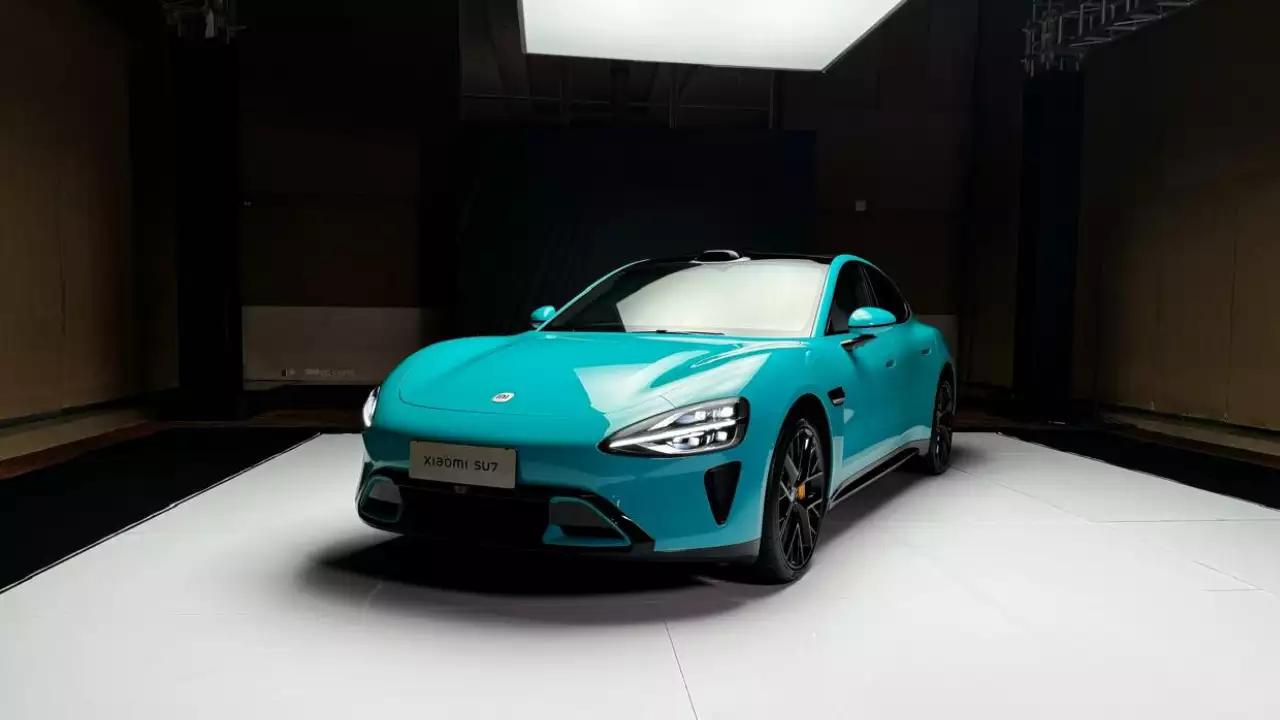Are you ready to see how China’s electric vehicle landscape is dramatically shifting? Xiaomi has just delivered a staggering 29,000+ electric vehicles in March alone, marking a pivotal moment in the country’s increasingly competitive EV race.
Contents
Chinese EV Market Leaders Emerge as Deliveries Soar
The battle for China’s electric vehicle market dominance is heating up, with clear winners beginning to pull ahead. Xiaomi, primarily known for smartphones and consumer electronics, has proven its automotive ambitions are far from casual – delivering a record-breaking number of electric vehicles that exceeded 29,000 units in March 2025.
This impressive performance marks the sixth consecutive month Xiaomi has delivered over 20,000 vehicles, solidifying its position as a serious contender in China’s cutthroat EV market. The company’s flagship SU7 model has captured significant consumer attention, prompting discussions about expanding their second EV factory in Beijing to meet surging demand.
March 2025 EV Delivery Performance
| Automaker | March 2025 Deliveries | Year-over-Year Growth |
|---|---|---|
| BYD | 371,419 | 57.9% |
| Leapmotor | 37,095 | 154% |
| Li Auto | 36,674 | 26.5% |
| Xpeng | 33,205 | 268% |
| Xiaomi | 29,000+ | N/A (new entrant) |
| Tesla (China) | 78,828 | -11.5% |
| Nio | 15,039 | 26.7% |
| Zeekr | 15,422 | 18.5% |
The numbers tell a compelling story – Xiaomi, Xpeng, and Leapmotor have each delivered approximately 30,000 or more vehicles in March, roughly double what several of their competitors managed. This creates a clear stratification in the market, with BYD maintaining its position as the undisputed market leader with 371,419 passenger vehicles sold in March.

Q1 2025: The Battle Intensifies
The first quarter of 2025 paints an even more intriguing picture of China’s evolving EV landscape. BYD has maintained its dominance with 986,098 vehicles sold, surpassing Tesla in battery electric vehicle sales this quarter. Tesla sold 172,754 vehicles in China during Q1, according to the China Passenger Car Association.
Xpeng reported remarkable growth with 94,008 vehicles delivered in Q1, reflecting a staggering 331% year-over-year increase. Leapmotor’s quarterly deliveries more than doubled to 87,552 units compared to the same period in 2024.
Meanwhile, Li Auto and Nio reported more modest growth than their competitors, with Li Auto delivering 92,864 vehicles (15.5% year-over-year growth) and Nio reaching 42,094 vehicles (40.1% year-over-year growth).
Quarterly EV Delivery Comparison (Q1 2025)
| Automaker | Q1 2025 Deliveries | Year-over-Year Growth |
|---|---|---|
| BYD | 986,098 | N/A |
| Xpeng | 94,008 | 331% |
| Li Auto | 92,864 | 15.5% |
| Leapmotor | 87,552 | 162% |
| Tesla (China) | 172,754 | N/A |
| Nio | 42,094 | 40.1% |
Technology and Innovation Driving Growth
What’s propelling these impressive numbers? Innovation remains at the forefront of this competitive market. BYD unveiled its groundbreaking “Super e-Platform” technology in March, which promises 400 kilometers (approximately 249 miles) of range with just five minutes of charging – addressing one of the primary concerns for potential EV adopters.
The automaker is also integrating DeepSeek artificial intelligence to develop “DiPilot,” its advanced driver-assistance system, further enhancing its technological edge.
Xiaomi, leveraging its tech expertise, has equipped its flagship SU7 with navigation on autopilot mode. However, the company faced scrutiny following a highway accident involving the SU7 that resulted in three fatalities. Xiaomi stated that preliminary information indicated the road was obstructed due to construction, and the driver had taken control before colliding with construction infrastructure.
Competitors are similarly focusing on technological advancements to differentiate themselves. Zeekr announced the rollout of free advanced driver-assistance technology to local customers, while Xpeng continues to gain traction with its Mona M03 model, delivering over 15,000 units for the fifth consecutive month.
Global Expansion Efforts
The competition isn’t limited to domestic markets. BYD’s overseas sales volume hit a record high of 72,723 units in March, demonstrating its global ambitions. Similarly, Leapmotor, now owned by Stellantis, launched U.K. sales of two electric vehicle models, the T03 and the C10, in March.
These expansion efforts highlight how Chinese EV manufacturers are increasingly looking beyond their domestic market to fuel growth and establish global brand recognition.
The Road Ahead for China’s EV Market
As winners begin to emerge in China’s electric vehicle race, the competitive landscape continues to evolve rapidly. BYD maintains its commanding lead, while newcomers like Xiaomi demonstrate that technological expertise can translate into automotive success.
The stratification between top performers delivering 30,000+ units monthly and those struggling to break the 20,000 unit barrier suggests that consolidation may be on the horizon. Factors like technological innovation, manufacturing efficiency, and global expansion strategies will likely determine which players continue to thrive in this increasingly competitive market.
For consumers, this intense competition promises continued innovation, improving technology, and potentially more competitive pricing – making the transition to electric vehicles increasingly attractive both within China and globally.
Are you watching this electric revolution unfold? The race is far from over, but the frontrunners are becoming increasingly clear.
Read more- Gujarat Sets Its Sights on Becoming India’s Top EV Manufacturing Hub

